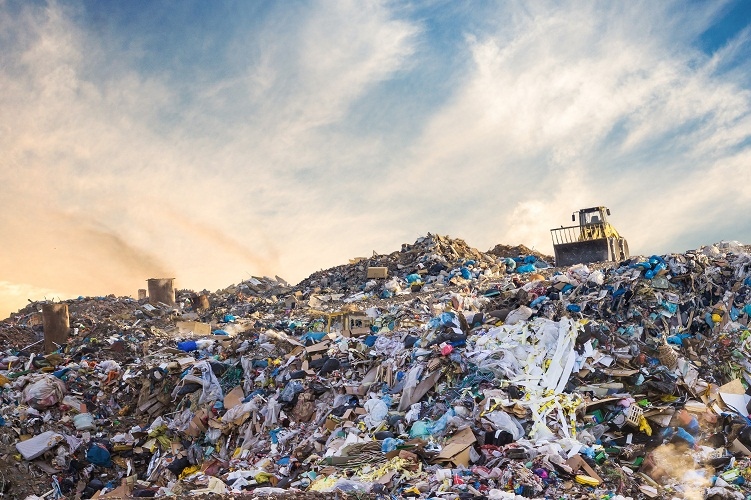Increasing waste generation coupled with inappropriate management of waste can have cascading negative impacts on the environment, economy, social life and public health. For a state like Goa that relies heavily on the tourism industry to drive its economy, it is highly imperative to maintain good aesthetic and environmental quality

● Uncontrolled burning of household waste globally causes about 270,000 premature deaths every year. Apart from cancer producing gases, it also releases greenhouse gases (GHG) responsible for global warming and climate change
● Landfills also contribute to climate change, accounting for approximately 5% of global GHG emissions
● As per an Ellen MacArthur Foundation report, by 2050, oceans might contain more plastics than fish by weight
● A study conducted by Central Marine Fisheries Research Institute (CMFRI), Kochi reported that Goa’s beaches have highest concentration of plastic debris in India
● WHO and US Public Health Services have identified 22 diseases linked to improper solid waste management
The state of our environment dictates our state of health and well-being. Air and water pollution, soil contamination, land degradation, climate change, improper waste management seriously affect human and ecosystem health alike.
For a state like Goa that relies heavily on the tourism industry to drive its economy, it is highly imperative to maintain good aesthetic and environmental quality. Indiscriminate dumping of waste in open spaces and water bodies leads to soil and water contamination. Along with run-off during the monsoons, a lot of waste finally finds its way to the sea adversely affecting the coastal and marine ecosystem. The sand dunes on beaches - home to a variety of plant and marine life particularly stand threatened. It is important to note that sand dunes are a natural barrier against cyclones and storm surges acting as a first line of defence to the coast, and hence have a pivotal role to play in combating natural disasters brewing due to climate change.
Last year, a team from National Institute of Oceanography, Goa found 1,078 kg of plastics, 486 kg of organic waste including paper and other trash, 720 glass bottles and 125 metal cans on only a one-km-long stretch of Caranzalem beach near Panaji during a beach clean-up activity. NIO research also established the presence of microplastics in water along Goan beaches during a study in 2016-2017. Micro plastics are extremely small pieces of plastic debris in the environment, resulting from the disposal and breakdown of consumer products and industrial waste. Being extremely small they are ingested by marine animals which ultimately are consumed by humans at the end of the food chain. The study found microplastics present in fish, mussels, turtles, and sea birds in Goa.
Irresponsible dumping of solid waste also contributes to clogging of drains that cause flooding especially during the monsoons, water stagnation and insect breeding giving rise to malaria and dengue infections.
Further, burning of waste can cause respiratory problems due to toxic mix of particulate matter and carcinogenic gases. Health Department statistics indicate that on an average two cancer cases are detected every day in the state. Although, there is no specific data that directly correlates cancer cases to waste burning in Goa, one must not undermine the impact of waste burning which is rampant across the state.
Landfills also contribute to GHG emissions as organic waste decomposes at these sites. Untreated leachates pollute surrounding soil and water bodies and can cause skin and gastrointestinal ailments. It is not surprising that our cities are frequently plagued by diseases such as typhoid, filariasis, malaria, dengue, bird flu, swine flu, chikungunya, etc.
Unhygienic environment not just affects human health, but all living beings in the eco-system. In a July 2020 report, the United Nations Environment Programme (UNEP) and the International Livestock Research Institute (ILRI) emphasize the ‘One Health Approach’ uniting human, animal and environmental health should be the mantra going forward.
It is time we start paying attention to the way we manage our waste. The Corporation of the City of Panaji (CCP) has recently provided home composting guidelines along with GIZ and TERI on their website in a bid to help citizens manage organic waste at source. CCP is also involving citizens for a 16-way segregation in order to convert all dry waste generated into a resource. Simple tasks such as segregation and composting at home will not only help us, but also future generations to overcome these health and environmental challenges and in the process uplift the economy and social life.
*Kazi is Fellow Environment Education and Awareness Area, TERI; Pandey is Director, Environment and Waste Management, TERI; Ahmad is Project Consultant, TERI. The article has inputs from Vaibhav Rathi, Technical Advisor-Climate Change, GIZ and Sourabh Manuja, Fellow, Environment and Waste Management, TERI.
**Views expressed are personal.